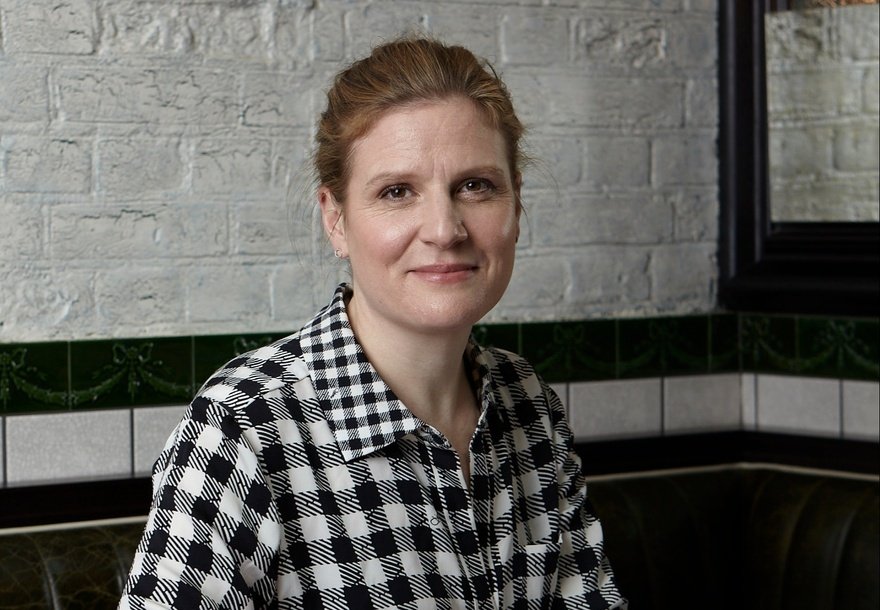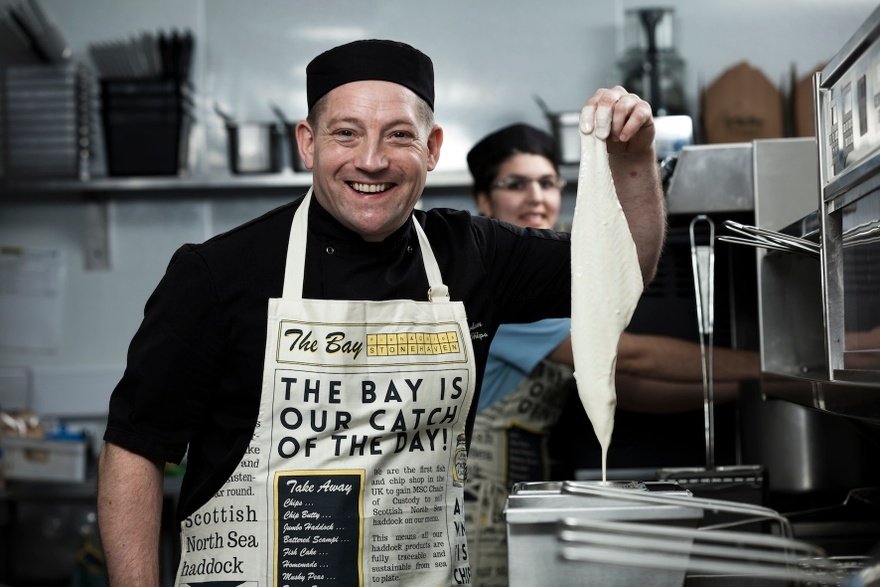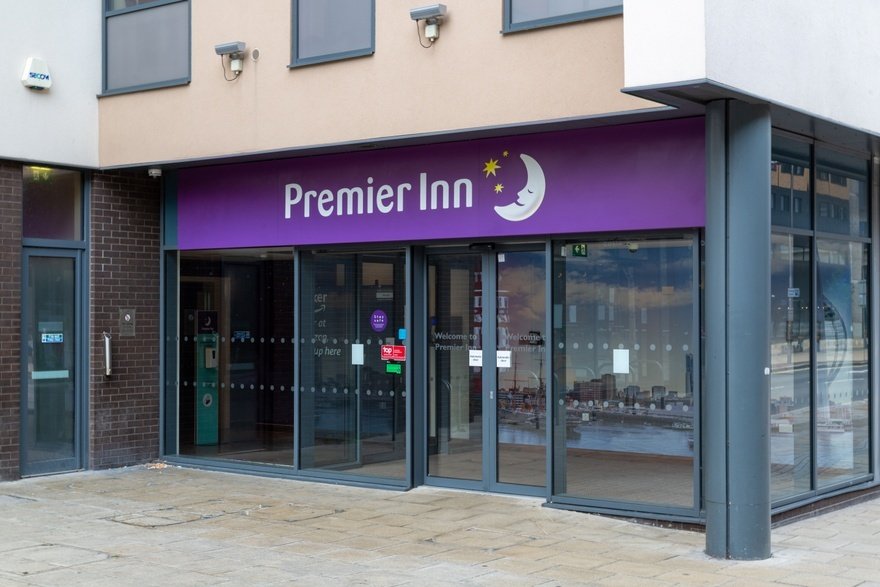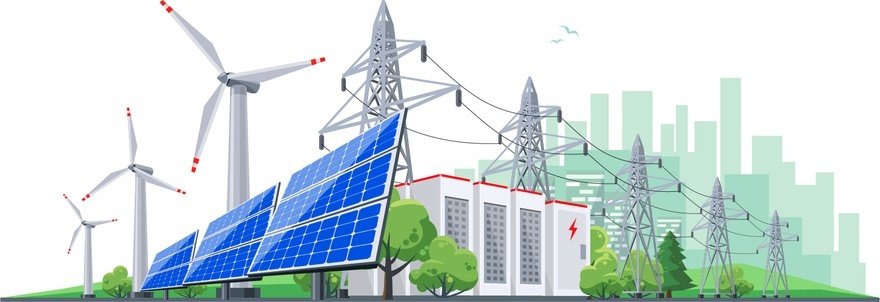The UK is racing ahead with renewable energy, to the point where it's now usually the cheaper and greener option for companies of all sizes. Ben Walker looks at the operators who have left the big energy suppliers behind
It's a long journey, but the UK is making progress in decarbonising its power supply.
A significant milestone was recorded back in April 2020 when the National Grid ESO reported a record period of 18 days when all of the nation's electricity came from renewable sources rather than coal, oil and gas.
The government announced its 10-point plan for a ‘Green Industrial Revolution' in November 2020, with a target to eliminate all harmful fossil fuel emissions by 2050. In fact, the UK has the largest offshore wind farm in the world (Hornsea One, off the Yorkshire coast), and the government intends to accelerate investment in renewable energy as a way of creating jobs and supporting the post-pandemic economic recovery.
All of this investment means the cost of renewables has fallen significantly. Therefore, a low-cost or no-cost easy win for all hospitality businesses – whatever your size or location – is to switch to renewable energy suppliers.
The more businesses (and households) that source renewables, the more money is invested in clean energy, reducing the UK's reliance on harmful fossil fuels.
The big six energy companies – SSE, Scottish Power, Npower, Eon, EDF Energy and British Gas – offer renewable energy contracts, but not all businesses qualify. Alternatively, there are hundreds of smaller, independent renewable dealers, including Ecotricity, Good Energy, Octopus Energy and Bulb.
Will Ashworth, chief executive of the Watergate Bay hotel in Cornwall, switched his electricity supply to Good Energy seven years ago: "At the time it required us to commit to a higher tariff. However, as renewable energy prices have come down, it is now absolutely comparable, if not better value, than a standard supplier."
Chantelle Nicholson, chef-patron of Tredwells in Covent Garden, London, made the switch more recently but found it easier for someone else do the legwork. She says: "It can be a bit of a minefield figuring everything out, so it's generally better to use a broker."
Customer care
As well as offering competitive tariffs, hospitality operators report better customer service with smaller suppliers. "When you're dealing with a small company, you actually matter," says Ashworth. "I can't believe we suffered at the hands of the big six energy suppliers for so long, when the bills were always challenging and almost always wrong."
I can't believe we suffered at the hands of the big six energy suppliers for so long, when the bills were always challenging and almost always wrong
Calum Richardson, owner of the Bay Fish & Chips in Stonehaven, Aberdeenshire, uses Good Energy for his electricity and Ecotricity for gas. He explains that with the traditional suppliers it is difficult to speak to the same person as the companies are so large. "With the smaller suppliers, you have a business manager who you can contact and talk things through and it's relevant," he says.
Indeed, hospitality businesses recently supplied evidence of unfair treatment at the hands of major energy firms. One Scottish hotel received a 27.3% higher quote for annual renewal with SSE, and another was told to pay a £60,000 deposit up front.
UKHospitality asked the government and energy regulator Ofgem to investigate. UKHospitality's chief executive Kate Nicholls says: "We have been told of energy companies penalising hospitality businesses for unused energy during the lockdown period. This lack of empathy with businesses that have been savaged by the coronavirus crisis verges on immoral."
Meanwhile, The Caterer recently reported on a number of operators claiming to have been turned down by British Gas as it deemed hospitality customers too high a risk.
Buying power
Multi-site hospitality operators with big energy requirements can secure even better value green tariffs by signing a power purchase agreement (PPA), where energy is sourced directly from a specific generator. Historically, PPAs have given businesses fixed tariffs for 20 years or so, but they are now available for much shorter terms.
Dominic Burbridge, associate director at the Carbon Trust, says: "PPAs can be very attractive because you might buy at a slightly higher price today, but you will be getting a really good deal over the term. They are greener too. As you are contracting directly with the generator, it means they can get bank finance, helping more renewables onto the grid."
Nando's UK has a 100% renewable electricity contract and is planning the same for its gas supply, still a rare move among large companies. The majority of Hilton's managed hotels in the UK operate on green electricity, while Whitbread sources 100% renewable electricity in addition to generating its own supply from solar panels at nearly a quarter of its UK hotel estate.
A spokesperson says: "Premier Inn now has 4.7MW of installed capacity at 181 sites, generating 4GWh of electricity every year. The Whitbread team continue to review the potential to increase our use of solar."
Nicholson also advises not to forget about water: "I was unaware you are able to choose your water supplier, and it is very easy to switch. There are greener companies out there, so it's worth looking into."
Real-time savings
At the risk of stating the obvious, the energy that you don't use is always going to be the cheapest, so operators tend to combine a switch to renewables with a sharper focus on energy-saving practices.
A Carbon Trust study found that the average hospitality business spends 4p-6p per £1 of operating costs on energy, while the most efficient operators are spending closer to 2p.
Richardson – who won the Sustainable Award at the 2020 Cateys – uses a real-time meter to monitor his gas, electricity and water consumption. He says: "I put my tariffs into the box and can watch in real time how much I am spending. If a tap is running, I can see the cost – 10p, 20p, 30p – going up. So, all of a sudden you might think, let's get that tap switched off," he explains.
The real-time meter can check the energy consumption of individual kit too, and enabled Richardson to remove a chilled drinks machine that wasn't making money.
The Restaurant Group uses a similar reporting system on a larger scale, where its operations managers have identified wastage and eliminated millions of kilowatt hours of usage. Hilton also uses its own tool to track' environmental and social impact, where performance data for each hotel is visible to guests via the hotels' WiFi landing page. Kate Mikesell, vice-president, corporate responsibility at Hilton, says: "We are proud to have been the first major hotel brand to set science-based carbon reduction targets aligned with the Paris Climate Agreement."
Richardson says having the meter values displaying in pounds and pence has been a huge benefit in cutting costs and getting his team on board.
"It's things like coming into work and automatically turning on the oven, but we don't need it for an hour, so why are we turning it on? Someone may not understand kilowatts, but they can see that the oven is costing £1 an hour when it isn't being used. If I save that money, I can put it into wages. That makes sense to staff," he says.
Someone may not understand kilowatts, but they can see that the oven is costing £1 an hour when it isn't being used
Keeping utility costs low is also about purchasing decisions. For example, Burbridge advises always buying the most energy-efficient kitchen equipment: "Over the life-cycle of catering equipment, only 10% of costs are capital expenditure. The rest are all running costs," he says. Buying equipment with an energy efficiency rating lower than ‘A' is a false economy.
If new kit is off-limits for now, ensuring your equipment is well-maintained and clean is essential, says the Sustainable Restaurant Association. Fridges with dirty filters use 25% more energy than when new, and keeping your ventilator hoods clean and ensuring all heating elements are free of scale will also reduce your energy bills.
Boiling point
Meeting the UK's net zero target by 2050 will require a move away from natural gas, particularly the use of gas boilers in domestic and commercial settings.
As already mentioned, you can play your part by switching to a green gas supplier. But the current production of biogas (or biomethane) from anaerobic digestion plants is not enough to meet demand. Until the plants can provide 100% green gas, environmentally conscious providers such as Ecotricity and Contract Natural Gas offset their supply of North Sea gas by investing in carbon reduction schemes.
The move away from gas hobs has already happened in many professional kitchens and the price of induction hobs is falling. From the likes of Michel Roux Jr to chefs using £99 portable hobs, induction cooking has been embraced by operators on all kinds of budgets. Induction hobs also have the advantage of saving on your energy bills because they switch off automatically as soon as a pan is removed.
"We did some studies with pub group Mitchells & Butlers looking at alternatives to chargrills and gas hobs," says Burbridge. "There is now a lot of sophisticated combi oven and induction technology. On blind tastings, people preferred the combi oven dishes because they locked in a lot more moisture."
Gavin Smith, the new managing director of Pizza Pilgrims, was previously in operations at Wahaca, a group that pioneered sustainable practices, such as capturing heat from the back of fridges and freezers and using it to heat water in the restaurant bathrooms. Under his management, Pizza Pilgrims is reportedly trialling an electric pizza oven.
The next step
In addition to switching your utilities and reducing consumption, you might want to consider further investment. This might sound scary, but Burbridge points out there are lots of options where green energy projects are financed by third parties – "someone else will pay".
Another benefit of partnering with a renewable supplier is that they will have expertise in project finance. At Watergate Bay, electricity supplier Good Energy helped with the installation of eight electric vehicle charging points. Ashworth says: "It's a bit of a minefield as there are so many suppliers offering EV charging points, but Good Energy made it a seamless process and supported us in sourcing grants to ensure that the charging points were put in without significant costs to us."
Grants and incentives are available, but not always visible to those outside the renewable energy industry. Ashworth took advantage of the Non-Domestic Renewable Heat Incentive, a government scheme administered by Ofgem, which financed a biomass boiler system at his Lake District property, Another Place. "In essence, the project will pay for itself over 20 years," he says.
Burbridge recommends that if you lease your premises, before taking over or renewing the lease, ask your landlord whether they are doing anything to source renewable energy. Solar power tends to be the best bet because it is reliable and most buildings have access to daylight. If you do have the means to finance solar panels yourself, they are a good investment. He notes: "You're looking at payback in less than seven years and you will have an asset with a life of 60 years. It's a really good return on investment."
Staff engagement and motivation
The path towards decarbonising your hospitality business is about leadership, but equally about listening to and motivating staff. "You can have tunnel vision yourself, but staff can come up with great ideas," says Richardson. "If a member of staff comes up with something, they will get a reward, like a voucher for a meal or a concert."
Tom Tanner, PR manager at the Sustainable Restaurant Association, agrees. "Most people working in foodservice are from the younger generation. They want to be part of a positive future," he says. "If you empower them and give them the tools to make changes, they'll feel far more invested in what they are doing."
It is now much clearer what small companies need to do to be greener, compared to just a few years ago. Ashworth says: "The choice of well-priced renewable energy means the ability to lower our carbon footprint is easily achievable. I think that's the game-changer. There is no reason not to be using it."
Low-cost quick wins
- Switch to renewable energy tariffs. Prices have dropped significantly and there are hundreds of small, independent suppliers to choose from. Clean energy tariffs are available for electricity, gas and water.
- Monitor and manage your energy usage. Identify peak and trough hours and the practices that cost the most money.
- Empower staff to work more efficiently. Set targets with deadlines and work towards them.
- Set timers for heating and cooling. Ensure all lightbulbs are LED. Check for draughts and windows that don't close properly. Check the seals around fridges, freezers and oven doors.
- Dirty equipment uses more energy. Keep fridges, freezers and ventilator units clean and serviced to reduce your bills and avoid nasty surprises.
- Kitchen layout also affects efficiency. Fridges and freezers located near ovens and burners have to work much harder.
- If you can afford new equipment, keep in mind that products with energy efficiency ratings below ‘A' will cost more in the long run.
Source: Sustainable Restaurant Association
Continue reading
You need to be a premium member to view this. Subscribe from just 99p per week.
Already subscribed? Log In








